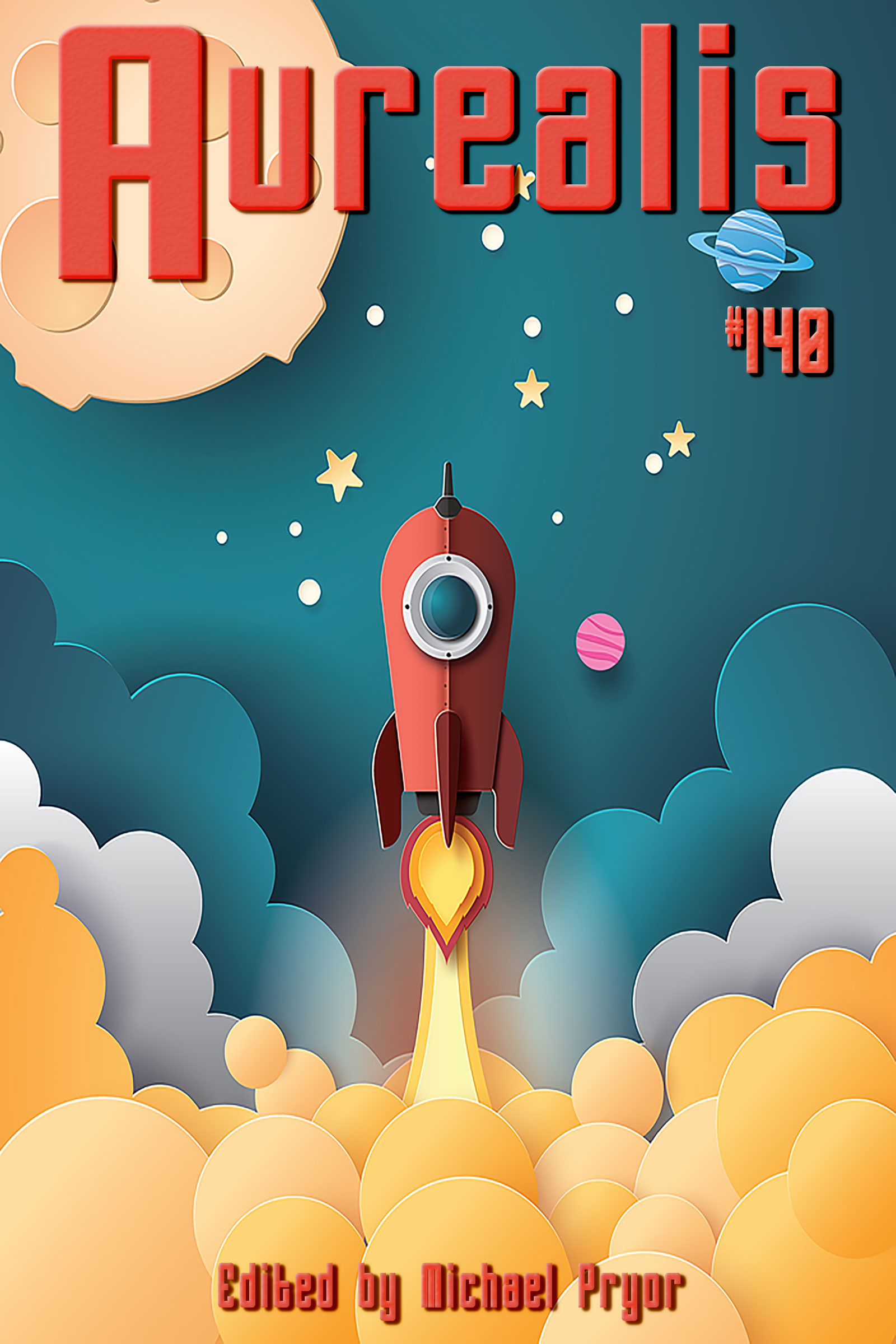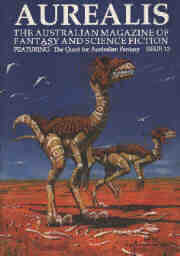Aurealis #140
$3.99
Aurealis #140 brings you remarkable stories from Erin A Sayers, Caylee Tierney and Azure Arther as well as absorbing non-fiction from Daniel Thompson, Lachlan Walter and Chris Foster. Don’t forget our extensive and insightful Reviews section and our stunning internal art from Peter Allert, Lynette Watters and Matt Bissett-Johnson. Aurealis, it’s quality through and through.
- From the Cloud — Michael Pryor
- Stories My Mum Told Me — Erin A Sayers
- Door Thirteen — Caylee Tierney
- The Last Memory — Azure Arther
- How We Should Really Define Planets — Daniel Thompson
- Science Fiction Films and the Disappearance of Satire — Lachlan Walter
- Stealing Answers from Stephen Hall — Chris Foster
As the great and much missed Terry Pratchett pointed out: ‘The first draft is just you telling yourself the story.’
True. So true that we at Aurealis feel it useful to extrapolate this cogent advice as an aid for all writers. To wit:
- The second draft is you telling the story to trusted readers.
- The third draft is you telling the story to your cat/dog.
- The fourth draft is you telling the story to random strangers on the street.
- The fifth draft is you telling the story on a nationally televised chat show.
- The sixth draft is you telling the story to the general assembly of the UN.
- The seventh draft is you telling the story to a shadowy transnational cabal.
- The eighth draft is you telling the story to yourself again, but under a blanket, in a hushed, quavering voice.
- The ninth draft is the story achieving self-awareness and telling itself.
- The tenth draft is the story rebelling against its master, destroying you and itself in an orgy of violence witnessed by villagers with flaming torches and pitchforks.
No need to thank us! Helping writers is part of our job.
All the best from the cloud!
Michael Pryor
From Stories My Mum Told Me by Erin A Sayers:
I don’t remember the rain. Sometimes late at night I’d lie in my bed and scrunch up my face really tight and imagine the sounds of millions of tiny people tap dancing on the tin roof. I keep thinking I could remember the sound of rain as a kid; but now my imagination’s faded, just like the colour of the landscape surrounding our farm.
Mum used to talk about the torrents of water that fell down from the sky in the old days. It didn’t matter how far from the coast you lived, endless clouds filled with oceans pelted down on the heads of the rich and poor alike, all bound to the cycles of the weather.
From Door Thirteen by Caylee Tierney:
The client across the reception counter trembled with excitement, his eager gaze settling expectantly on Remi.
‘Welcome to Dreamscape, sir,’ Remi said. ‘How can I help you today?’
From The Last Memory by Azure Arther:
I am the first person the boy has been sent to kill. I can see it in the terrified, dark eyes, the slouch of his slim shoulders, and his loosening grip on the heavy sword. He is paralysed in the flickering reddish gold of the braziers. We stare at each other, both knowing. Another boy will be chosen, and this boy, this child in front of me, will be dead, meaningless. Only I will care. So I do what I must; I spit in his face and rattle my chains. I lunge at him and ignore the raw flesh of my ankles and wrists protesting the touch of the metal. I heap abuse as the boy stands there. He turns red, redder, purple.
From How We Should Really Define Planets by Daniel Thompson:
Following the discovery of the trans-Neptunian object ‘Eris’ in 2006, the globe-spanning organisation of stargazing boffins known as the International Astronomical Union (IAU) decided to finally spell out a definition of what a ‘planet’ is for the first time. This was done to settle the question of whether Eris would be categorised as a planet or given some lesser label instead. The fate of similar-sized Pluto was, of course, hanging in the balance as well.
From Science Fiction Films and the Disappearance of Satire by Lachlan Walter:
Science fiction films were there at the beginning, and they have been a constant throughout the history of film. However, while examples such as A Trip to the Moon (1902), 20,000 Leagues Under the Sea (1916) and Metropolis (1927) were integral to cinema’s infancy, the production of science fiction films declined throughout the 1930s and 1940s, largely due to the effects of the Great Depression and the advent of the Second World War. They didn’t disappear completely, though, since during this time feature films gave way to serials based on comic strips such as Flash Gordon (1936) and Buck Rogers (1939).
From Stealing Answers from Stephen Hall by Chris Foster:
Sometimes you need a little Temptation in your life.
Or, in the case of comedic genius Stephen Hall, seven consecutive nights of Temptation resulting in being crowned the second Grand Champion for the TV show, with over half a million dollars’ worth of prizes. From there he went on to win another show competing against previous game show winners, donating $20K to the RSPCA.





